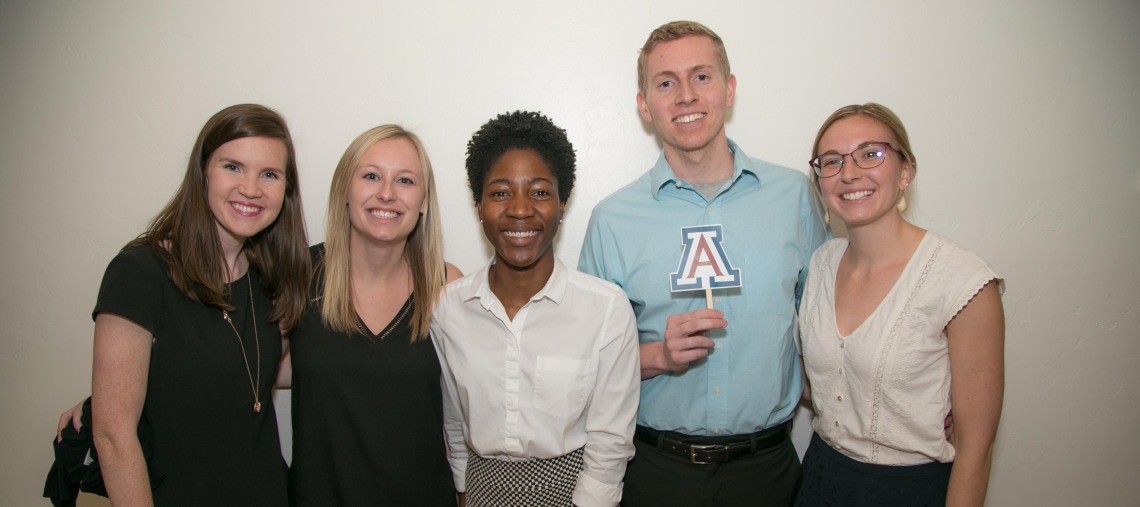
Master of Science in Speech-Language Pathology
Our master's degree in Speech, Language, and Hearing Sciences with an emphasis in Speech-Language Pathology fully prepares graduate students to meet all of the academic and clinical requirements for certification by the American Speech-Language-Hearing Association in Speech-Language Pathology.
Program Overview
Coursework covers communication disorders across the lifespan, and includes clinical education grounded in research and principles of evidence-based practice. Clinical training takes place in our UA Speech, Language, and Hearing Clinic and we offer a wide range of clinical practicum sites in the local community and beyond.
Students have the opportunity to engage in research, the option to complete a thesis, and many become co-authors on peer-reviewed publications. A Multicultural Bilingual Certificate Program is also available to graduate students.
The Reading UArizona Fellowship is open to MS students starting in Fall 2024 or Fall 2026. You can read more about it on this informational flyer:
SLHS has a tradition of participation in ASHA's Minority Student Leadership Program (MSLP).
A non-clinical Master of Science degree in Speech, Language, and Hearing Sciences (MS-SLHS) is available for students who choose not to pursue clinical training. It includes appropriate coursework and a thesis.
Students can pursue a research PhD as well as the clinical MS degree, either in-sequence or concurrently. Those interested should contact a prospective faculty mentor before applying to the PhD program.
Clinical Education Overview
Program Accreditation
The Master of Science (M.S.) residential education program in Speech-Language Pathology at the University of Arizona is accredited by Council on Academic Accreditation in Audiology and Speech-Language Pathology of the American Speech-Language-Hearing Association, 2200 Research Boulevard, #310, Rockville, Maryland 20850, 800-498-2071 or 301-296-5700.
Student Achievement Data
Student achievement is excellent as shown by program completion rates, performance on the national certification examination, and employment following graduation.
Program Description
Graduate students in our program prepare an individualized plan of study with guidance from their faculty advisor. A detailed description of the academic and clinical training requirements is included in the Master of Science Student Handbook (MS Cactus Book).
Student Resources
Additional detailed information is available below:
If you are interested in visiting the UA campus and our department, please see the Events section for designated Prospective Student Visit days. On these days you will meet academic faculty, clinical faculty, and current students and you will take a tour of the Clinic and research laboratories.
Read more on how to share concerns or complaints about the program or compliance with standards and regulations.
The Department of Speech, Language, and Hearing Sciences is committed to creating and maintaining an environment free of discrimination -- in the classroom, the clinical setting, and the workplace. The University of Arizona Office of Institutional Equity provides education and support for these efforts.
The University of Arizona is an equal opportunity, affirmative action institution. The University prohibits discrimination in its programs and activities on the basis of race, color, religion, sex, national origin, age, disability, veteran status, sexual orientation, gender identity, or genetic information and is committed to maintaining an environment free from sexual harassment and retaliation.

